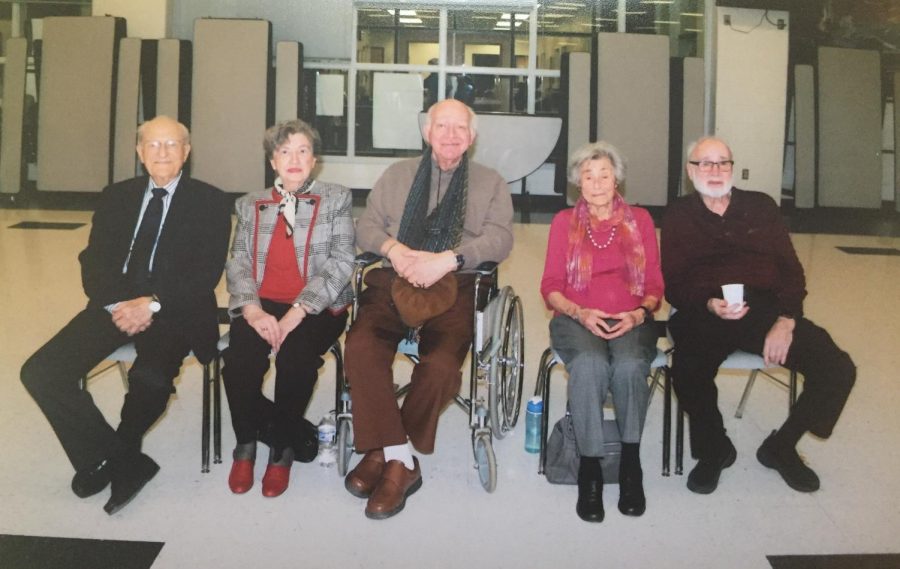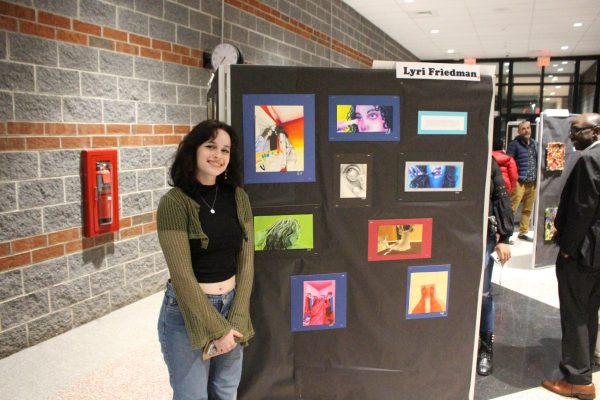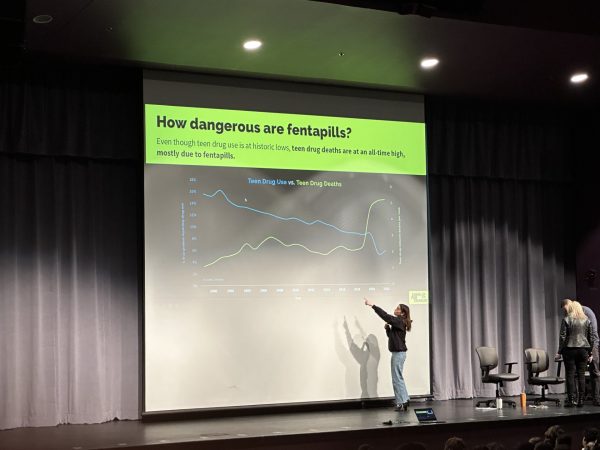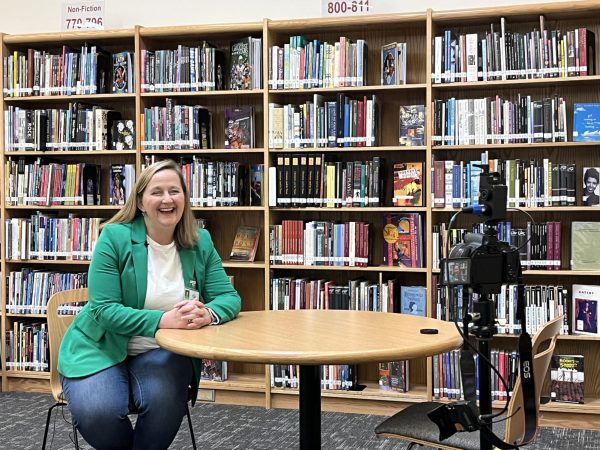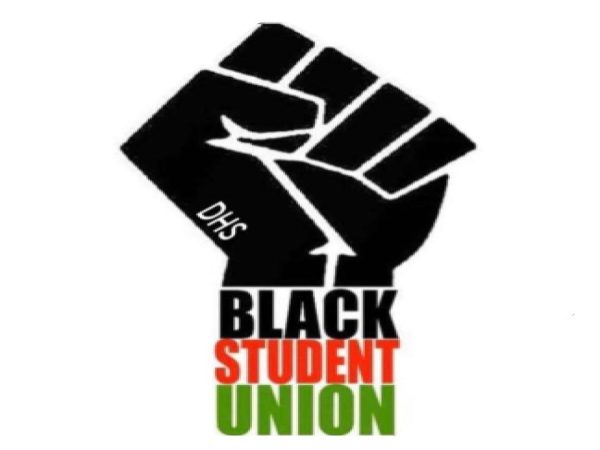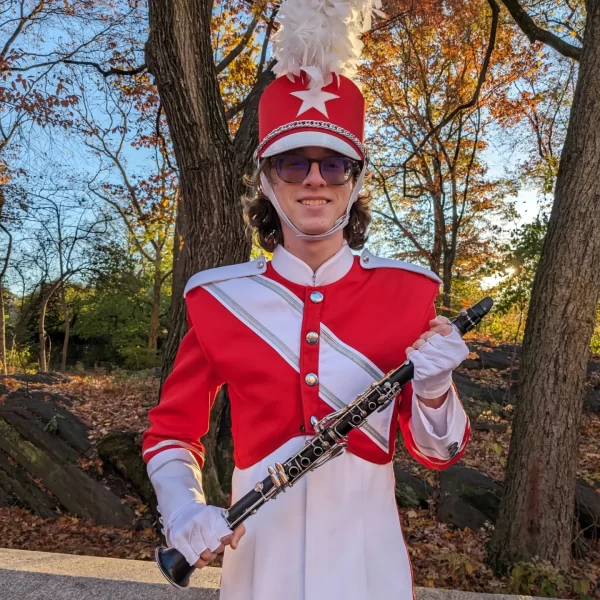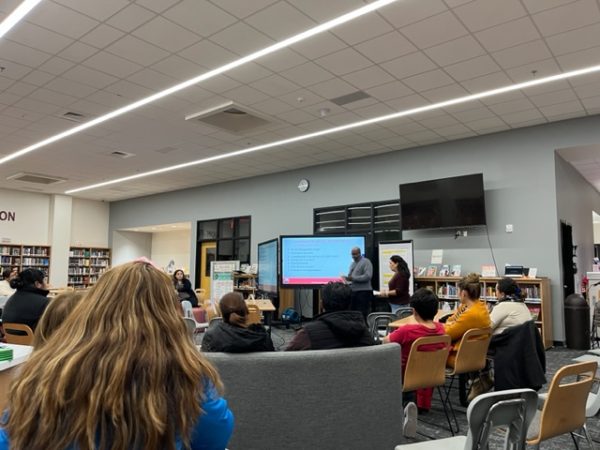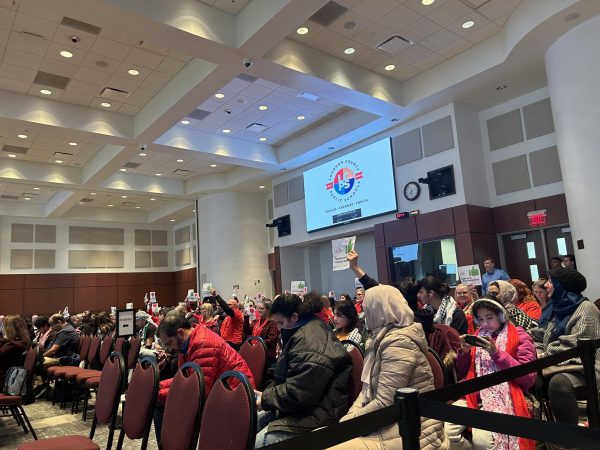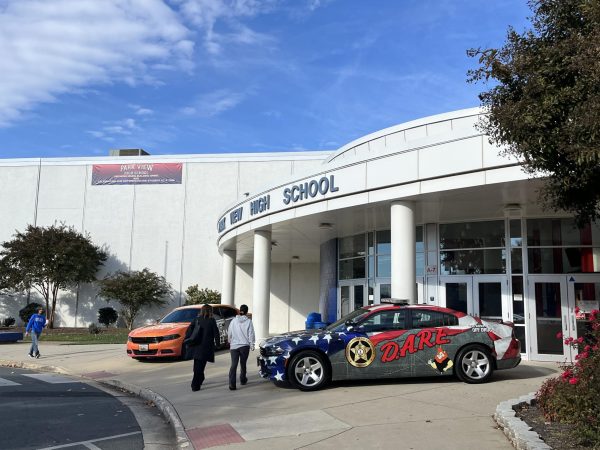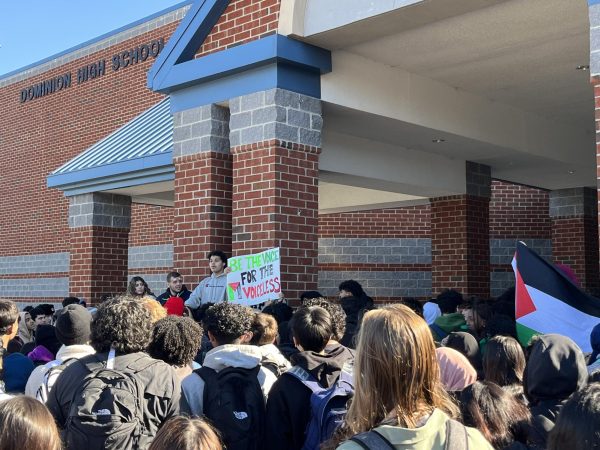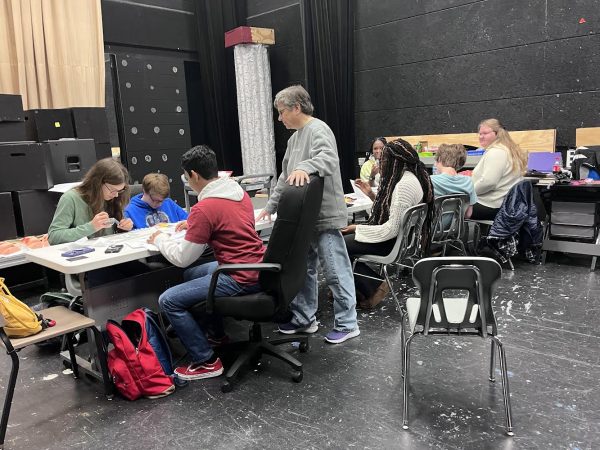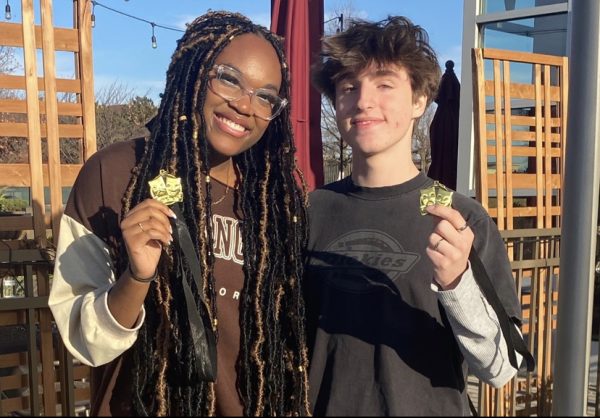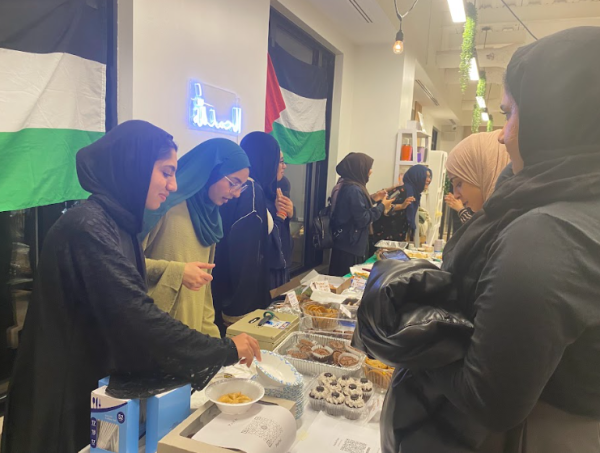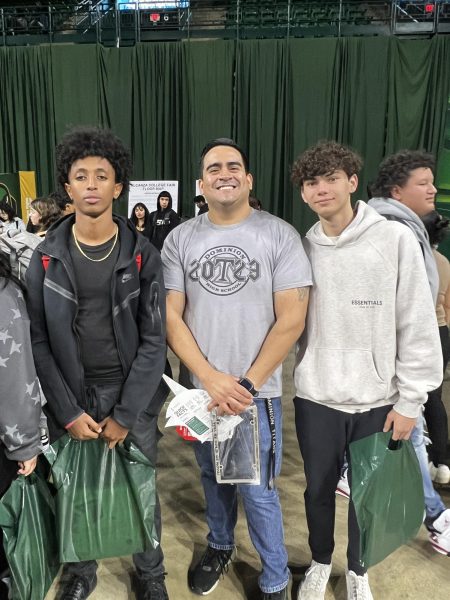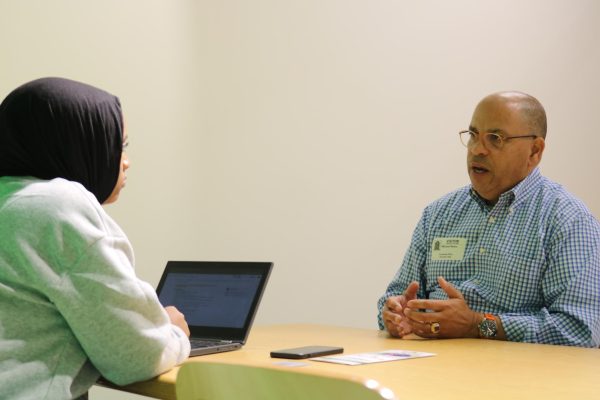Carrying on the Stories of Survivors
Five Holocaust survivors came to Dominion on April 3rd to talk to students as part of the “Adopt-a-Survivor” program.
The Holocaust survivors sit down before the “Adopt-a-Survivor” program starts. Left to Right: Irving Roth, Klara Sever, Jacques Wagschal, Margit Meissner, and John Grausz.
In the middle of a week that was filled with International friendship and communication, delegates from around the world and students from Dominion came together to have a discussion surrounding the Holocaust with an event called “Adopt-a-Survivor”. The event came to Dominion last year during the International Summit.
Ms. Korsen, the sponsor of the Jewish Student Union, first learned of the program during a Holocaust professional development. Ms. Korsen said, “Students meet with different survivors, and they hear their story, they get to know them on a personal level, and then they pledge to adopt their story and to continue to tell it, even when the survivors aren’t around anymore.”
The event took place throughout classrooms in Dominion as four survivors talked to around 25 students each about their stories for an hour of personal conversation. Before arriving, students were given a folder which contained information about the survivor, and students were also asked to come with a least one question.
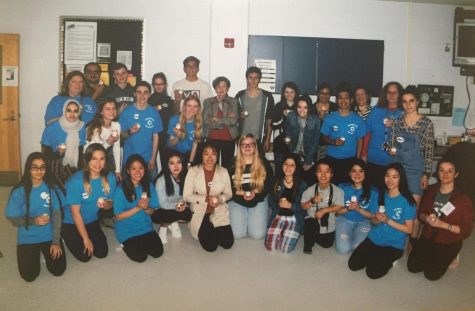
Jordan Gortowski, the co-president of JSU, also spoke on the unique experience, she said, “We’re the last generation that is going to have [the] opportunity to speak to a survivor, [and] we need to continue to tell the stories of people who have been through it.”
Before the event started students and delegates attending created posters that said “Never Again” in their perspective languages. They were also given dinner, allowing for the Dominion students and the delegates to interact. This idea of “Never Again” was highly stressed as Ms. Korsen said, “Especially young people, they haven’t heard of it. I’ve heard a lot of times they don’t believe that happened.”
Students then went to different classrooms where the “Adopt-a-Survivor” program began. Students were given candles that had messages about Holocaust Remembrance Day and a picture was taken with the students and delegates with the Holocaust survivor whose stories they were listening to.
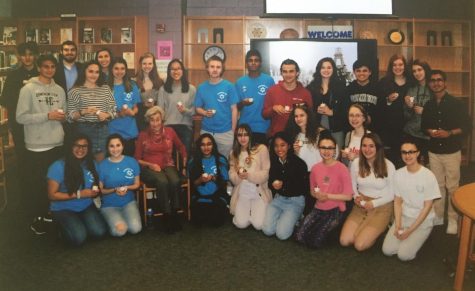
There were five survivors present, four of them spoke as part of the “Adopt-a-Survivor” program, while the keynote speaker, Irving Roth, spoke later in the night. The four speakers where John Grausz, Margit Meissner, Klara Sever, and Jacques Wagschal.
One of the four survivors who attended was Jacques Wagschal, who spent his young life in Antwerp, Belgium before World War II and is Ms. Korsen’s dad. His siblings and he were put into an orphanage as their parents were taken away to camps. At the orphanage, called the Wezembeek house, Nazi’s would periodically come into the orphanage to come and take children in order to fill the quotes of 1,000 people who were transferred to camps. At the time that this all started, Wagschal was only four years old, and because of this, he moved around more than others. He was forced to constantly live in fear and spend time in the woods, living off of berries. He said of that fear, “Fear is one of the strongest weapons.” By the time that the camps were liberated, Wagschal was 7 years old, luckily his whole family survived and was able to reunite at the D.P, or displaced persons, camps.
Wagschal also described the intense hatred and brutality as he said that many children were killed. He said, “To them killing was nothing.” He also shared the other horrific and dehumanizing acts, as the Nazi’s would shave the heads of the Jewish people in the camps in order to take the hair and use them more mattresses.
Students also had the opportunity to ask questions of Mr. Wagschal. Out of these questions he shared the hardest part of living through the Holocaust, which he described as the starvation and the hunger. He told how dehumanizing hunger is and how it made him feel like a nobody and like he was just going to fall down and die. He also shared the after-effects of the starvation and how he had to learn how to eat again.
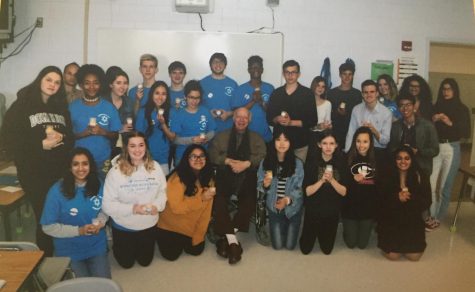
Wagschal also shared the importance of promoting love over hate in every situation. He expressed the negativity that comes with bullying as well as how hate tends to come from other generations. He said, “Never teach hatred, always teach love.” He also explained the importance of forgiveness for these atrocities, but also continuing to follow the theme of “Never Again”, he said, “Forgive, but don’t forget.”
The Jewish Student Union started the program at Dominion and has worked with other cultural groups throughout the school, such as the Muslim Student Association, Global Ambassadors, French Club, and German Club. Ms. Korsen said, “I think that we need to really keep an eye on that and learn how to work together and embrace what makes us different, instead of letting it tear us apart.”
Students who attended the program had the unique experience of speaking with a survivor of the Holocaust on a more personal level. Ms. Korsen said, “We asked that they talk to their survivor, you know, and get to know them on a personal level so that they see that there’s so much more about them.”
The “Adopt-a-Survivor” program also had the goal of highlighting other possible global issues to make sure that something similar to the Holocaust never happened again. Ms. Korsen said, “The Holocaust is often used as a springboard to talk about human rights violations because it was unprecedented [and] never [had] happened before.” She also said, “I think it’s more about us being aware of what can happen, the consequences of unchecked hatred and racism.”
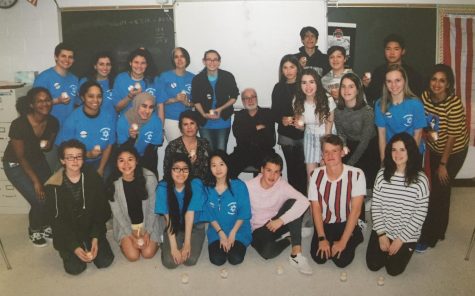
A main goal of the program was to show that people need to learn from history. Katie Feldman, the secretary of JSU, said of what she hoped students would take away from the experience, “I hope they learn the value of like learning from past mistakes in history, and how they can help the future not make the same mistakes today because anti-semitism is also coming back into government and politics. And we need to take action before it becomes out of hand.”
After the survivors finished sharing their stories and all the questions were asked, each participant was asked to sign an online waiver where they would continue onto share the stories of the survivors.
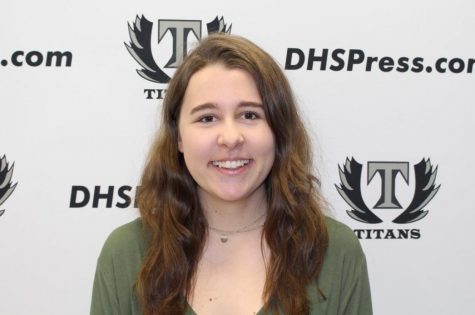
Morgan Fischer has been on the DHS Press Staff since 2017, and first wrote for them in 2016. Now a senior, Fischer was named Editor-in-Chief in 2018. She...



